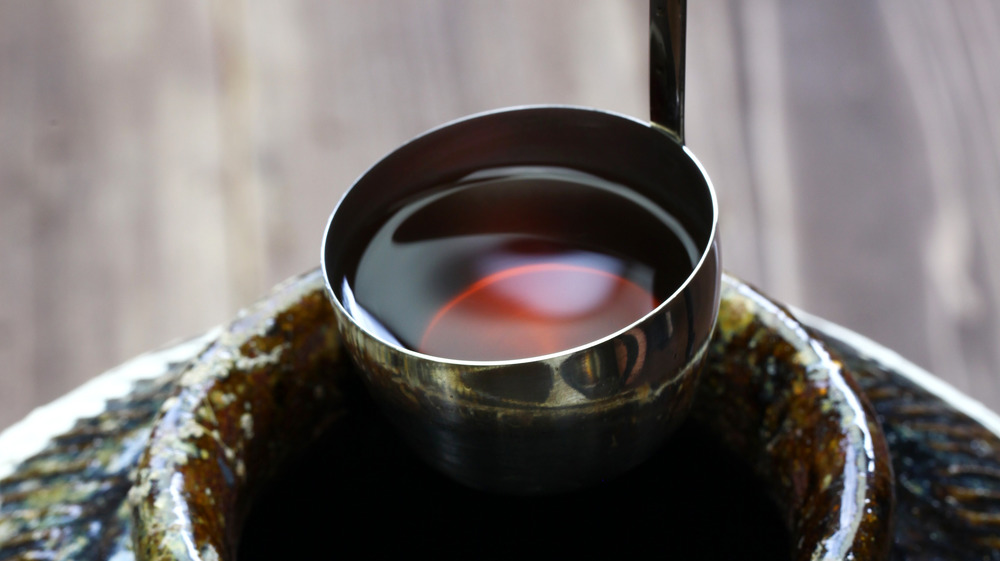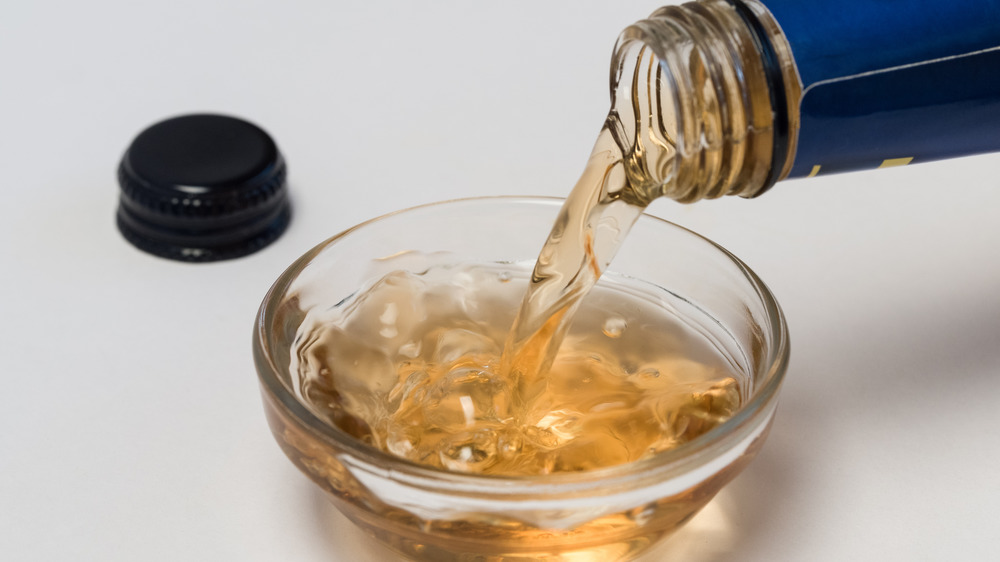Here's What You Can Substitute For Rice Wine
Is there anything more frustrating than having your kitchen prepped to cook the perfect meal, pulling out all the ingredients, and realizing you are one element short? (Been there, done that, had to pull up the delivery apps.) Sometimes, of course, you can make a substitution and still end up with tasty results. Rice wine is one of those ingredients, for example, that you can swap out, and you don't even have to be an enophile to work this one out. But, first things first, what is rice wine?
According to Kitchn, rice wine is made from fermented rice via the good ol' yeast-transforming-sugar-into-alcohol process. Rice wine is relatively low in alcohol content, making it an ideal cooking ingredient. It's used in marinades and is a popular ingredient in Chinese cooking.
There are three common varieties (which might be three more than you have at home when you need it!), explains Kitchn. Those include: Shaoxing, mirin, and sake. Your best bet for purchasing them is finding an Asian specialty food store, but don't throw out the recipe if you can't find the rice wine you are looking for. There are several good substitutions that you just might have in your kitchen.
What (and what not) to substitute for rice wine
The most obvious substitute for rice wine (also called mijiu) is another kind of wine. If your recipe calls for Shaoxing, an amber rice wine, The Spruce Eats recommends swapping in a sherry, a fortified wine made from white grapes. However, if your recipe calls for a white rice wine, gin makes for a better substitution, because it resembles the flavor of white rice wine more than sherry does.
Don't have sherry or gin? If you have a dry white wine in the house, then you might still be in good shape. Though the flavor differs from rice wine, dry white wine can be substituted in marinades as a last resort. If you're making a stir fry, then apple juice or white grape juice can work in place of rice wine; although, it might make your stir fry a bit sweeter (via The Spruce Eats).
Whatever you do, don't try to use rice wine vinegar as a replacement for rice wine. Rice wine vinegar is acidic, unlike rice wine. This means, if you were to try to swap rice wine vinegar for rice wine in a stir fry recipe, instead of having a scrumptious meal at the end, you could just be left holding sour grapes.

